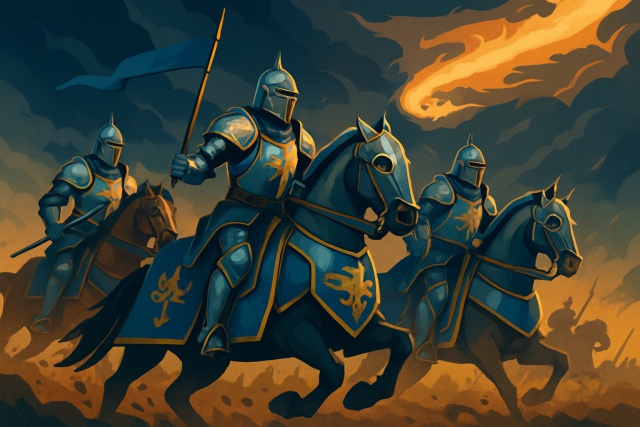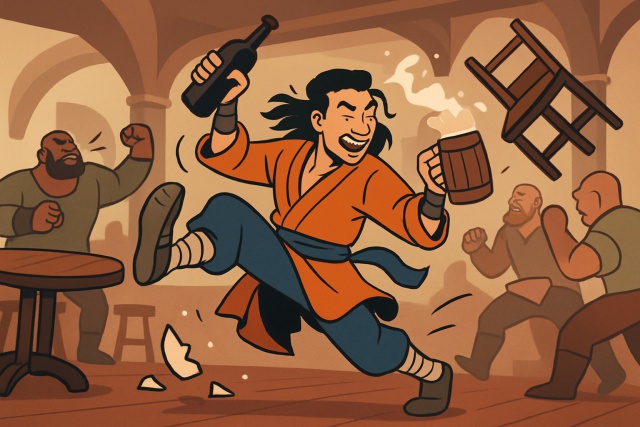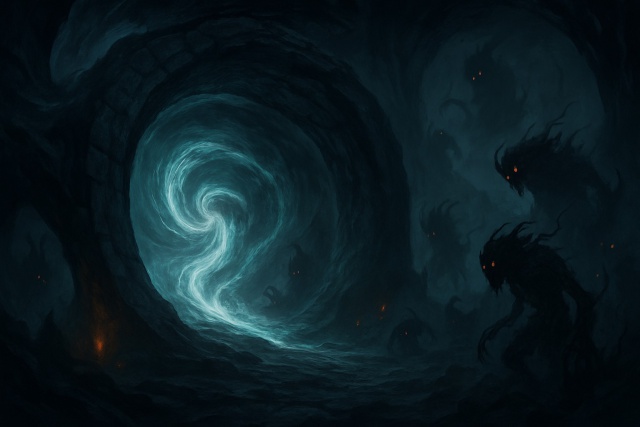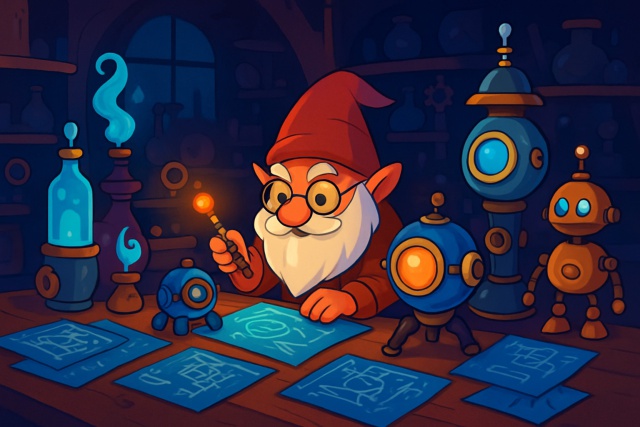
What Makes Devils Different From Other Fiends (Pathfinder)?

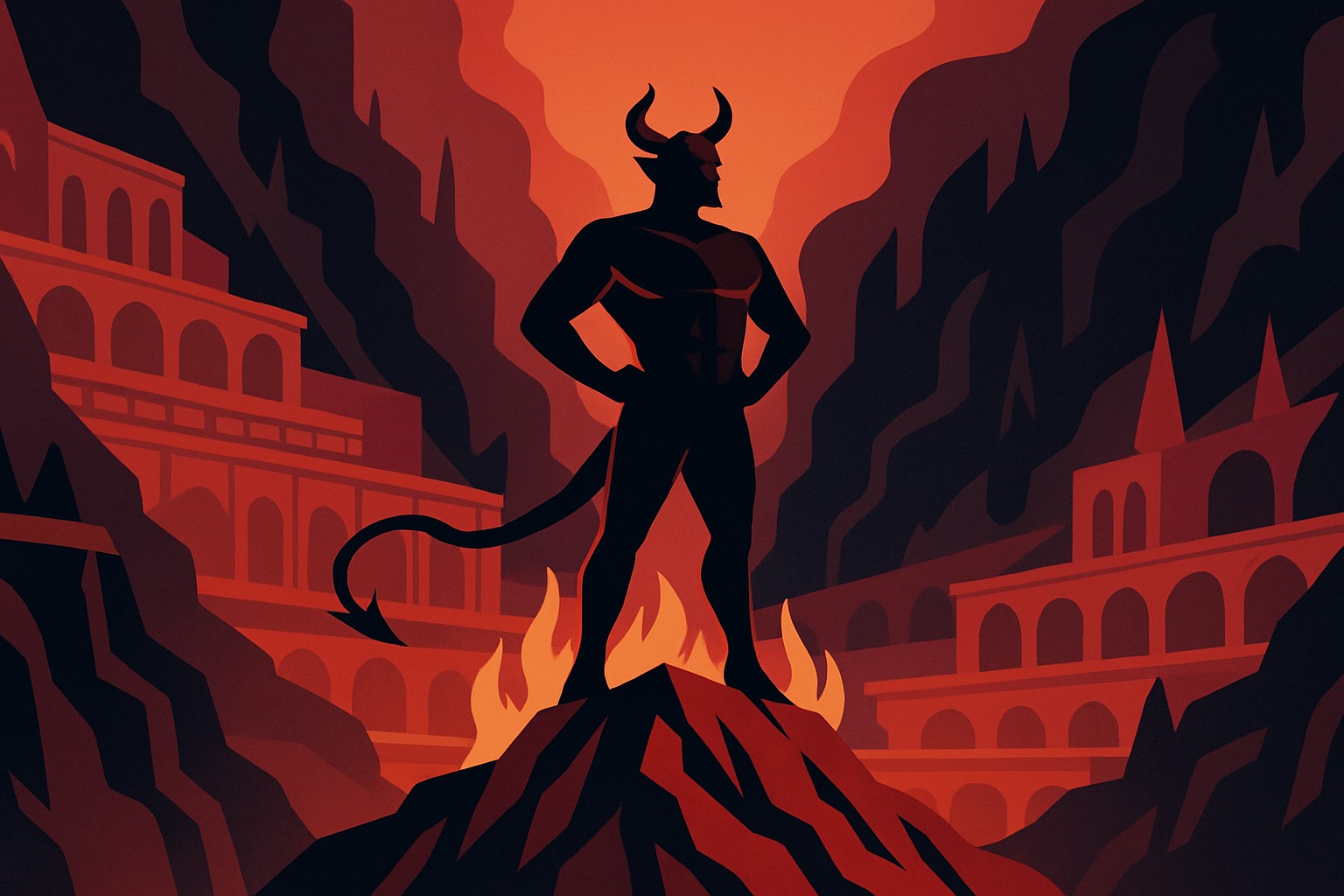
Pathfinder devils and fiends hold a starring role in the game's sprawling mythos, embodying the chaotic and nasty forces that lurk within its vast cosmology. They might seem like two peas in a pod—both powerful extraplanar baddies rooted in malevolence. But anyone who's dug deeper knows each boasts a distinct identity and rich lore with their own set of game mechanics that set them apart. This article takes a closer look at what makes devils stand out from other fiends such as demons and yugoloths.
Understanding Fiends as a Broad and Sometimes Mysterious Category
In Pathfinder the term fiend usually points to any evil creature from beyond the normal planes. We are talking about demons, devils, yugoloths and other infernal or abyssal nasties. These fiends often take center stage as the bad guys in adventures and embody shadowy forces that lurk just outside the material world.
- Fiends are nasty extraplanar outsiders usually found lurking in the darker corners of the multiverse. They are often cast as evil troublemakers from harmful planes.
- The usual suspects among fiends include demons, chaotic evil rascals known for their unpredictability; devils who follow a strict lawful evil code with lawyer-like precision; and yugoloths who hover in the murky waters of neutral evil while playing both sides with a wink.
- These fiends aren’t just scary faces. They come with supernatural powers, sturdy resistances and a wide array of infernal or abyssal tricks.
- Understanding fiends better helps players and GMs stay sharp and adds layers of depth to Pathfinder’s sprawling cosmology. This makes your storytelling richer and much more immersive and thematic.
What Exactly Are Pathfinder Devils? A Closer Look
Devils belong to a distinctive group of fiends defined by their lawful evil nature and origin in a realm of rigid order and heavy oppression known as Hell. Unlike their chaotic counterparts, devils value hierarchy, contracts and strict obedience. This combination makes them cold, calculated and law-abiding antagonists in the Pathfinder universe.
- Devils embody lawful evil, emphasizing order and control while sticking rigidly to the letter of the law.
- They hang out in Hell, specifically the infamous Nine Hells, a place known for strict rules and harsh punishments.
- Devils operate under a well-defined hierarchy with mighty archdevils calling the shots from the top.
- Their main goals are spreading corruption, weaving binding contracts that are hard to escape, and expanding their influence through manipulation and legal loopholes.
Many newcomers often confuse devils and demons and lump all fiends together as chaotic mindless troublemakers. Devils are actually quite clever and patient and downright lawful. They play by a complicated set of societal rules that keep things ticking. Their obsession with contracts and a strict hierarchy sets them apart from the wild destructive chaos demons bring to the table.
What Truly Sets Devils Apart From Other Fiends
Devils stand apart from other fiends not just because of their alignment and origins but also because of their behavior, social structures and unique abilities.
| Aspect | Devils | Demons | Yugoloths | Other Fiends |
|---|---|---|---|---|
| Alignment | Lawful Evil – they’re all about order and control, no messing around | Chaotic Evil – pure chaos and destruction, like a wrecking ball with attitude | Neutral Evil – practical, mercenary, and always looking out for number one | Varies – a mixed bag including both chaotic and lawful evil flavors |
| Home Plane | Hell (Nine Hells) – think strict rules and rigid hierarchy, no wiggle room | Abyss – ever-shifting chaos that keeps even demons on their toes | Gray Waste – a bleak, soul-sucking place that drains the spirit and hope alike | Various infernal or abyssal realms, wherever trouble brews |
| Social Structure | A no-nonsense hierarchy led by powerful archdevils, chain of command tight as a drum | Anarchic, brutal groups ruled by violence and pure survival instincts | Mercenary guilds focused on contracts—business first, loyalty maybe later | Sometimes hierarchical, sometimes anarchic, depending on what kind of mischief they’re into |
| Typical Behavior | Patient schemers who love their contracts and manipulation—slow and steady wins the soul | Wild, destructive, and downright unpredictable, like a storm you can’t outrun | Shrewd negotiators and neutral brokers who know a good deal when they see one | Behavior runs the gamut—from sly manipulation to outright chaos and carnage |
| Magic & Abilities | Masters of spirit manipulation, curses, and binding contracts—these people play the long game | Raw destructive magic and chaotic powers that blast through obstacles without a second thought | Experts in necromancy and soul-handling, with a knack for keeping things nicely balanced | A blend of infernal, abyssal, or unique monster abilities, always ready to surprise |
Understanding Alignment and Moral Code
Let's peel back the layers on alignment and moral code topics that sneak into every serious discussion about ethics, character, and sometimes even just figuring out why people act the way they do. It’s a bit like decoding a person’s internal compass, the one guiding their choices and actions, which can be as clear as day or as tangled as a plate of spaghetti. Whether you’re diving into philosophy, gaming, or storytelling, understanding these concepts can turn perplexing puzzles into something a lot more manageable.
Devils are the classic poster children for lawful evil, perfectly embodying the rigid structure and ironclad order of their home plane. Their particular brand of evil rears its head through strict control and enforcing subjugation with laws and contracts that leave little wiggle room. This is a far cry from demons who are chaotic evil through and through, thriving on destruction and disorder with wild unfiltered bursts of raw emotion.
Origins and the Natural Environment Closer Look
Devils hail from Hell, often known as the Nine Hells, a plane tightly governed by strict order and rigid law with layers of harsh tyranny. It’s quite the opposite from demons who burst forth from the Abyss—a chaotic, ever-shifting realm filled with malevolent forces. Then there are Yugoloths, a different breed of fiend from the Gray Waste, a neutral evil plane focused on corruption and mercenary contracts.
Society and Hierarchy
Every society, whether big or small, ends up juggling its own unique set of rules and rankings. It’s a bit like an invisible ladder everyone’s trying to climb or sometimes just hang onto without losing their footing. Hierarchy, in this sense, isn’t just a cold, rigid structure it’s woven into the very fabric of our daily interactions, often shaping how people relate without us even realizing it. While it might seem a tad old-fashioned or even unfair at times, it’s also surprisingly human, packed with nuance and, if you look close enough, a good deal of unspoken give-and-take.
Devils operate within a strict caste system where everyone knows their place in an unbreakable chain of command. Archdevils wield absolute power over entire layers of Hell. Lesser devils stick to their roles faithfully, bound by contracts and laws like good workers. Meanwhile, demons run wild in chaotic hordes without lasting alliances or steady leaders. They rely mostly on brute strength and pure violence.
Skills and Strengths as the Building Blocks of Success
Devils seem to have powers closely tied to manipulation, contracts, curses and infernal magic that really hammer home their control and domination. They’ve got a knack for resisting fire and poison and they are skilled in casting spells that bind or deceive their opponents. Unlike demons who tend to go in swinging with raw destructive magic and brute force, devils prefer to play the long game using their sly cunning to corrupt and trap their enemies. They slowly outsmart their enemies bit by bit.
How Devils Shape Pathfinder Gameplay and Storytelling A Deep Dive into the Fiendish Influence
Devils often show up as more than just your run-of-the-mill bad guys. They are those cunning villains whose intricate schemes push players to think far beyond simply swinging swords. Their obsession with law and contracts creates some truly intriguing storytelling moments. Players might end up striking deals that carry surprisingly heavy consequences down the road. For Game Masters, devils are gold mines of memorable NPCs and quest ideas because they don’t just muscle through problems but also navigate political intrigue with skill to get what they want.
- Adventure hooks involving devils often revolve around tempting characters with irresistible bargains or navigating the surprisingly corrupt bureaucracies of Hell. It’s the kind of challenge where wit often beats brawn.
- In combat devils stick to smart positioning combined with magic that chips away at their opponents. They lean more into control and precision than chaotic brawling. They’re not about throwing wild punches—they play the long game.
- Contracts and pacts take center stage in gameplay and open up unique chances for roleplay and layered story development. These moments can really add flavor to the narrative.
- Bringing devils to life convincingly requires nailing their lawful, cunning and patiently ruthless nature. It emphasizes subtle manipulation over brute force. After all, they are masters of mind games rather than muscle.
Common Misunderstandings About Devils and How to Avoid Them (Because Everyone Loves a Good Myth Buster)
Devils often get a bad rap from players and GMs who lump them with other fiends or chalk up their lawful evil alignment as rigid unflinching order. The pathfinder devils aren’t just mindless brutes pounding the pavement. They’re complex beings steered by a strict code of law that shapes their ambitions and feelings in ways you would least expect.
- Devils and demons have very different morals and ways of acting.
- Devils are lawful evil but not boring or predictable—their strict rules often spark some pretty clever plans and delightfully tangled schemes.
- Devils tend to shy away from brute force, usually favoring sly manipulation and binding contracts instead.
- Keep in mind their social hierarchy and how contracts are often the linchpin in their twisted tales.

